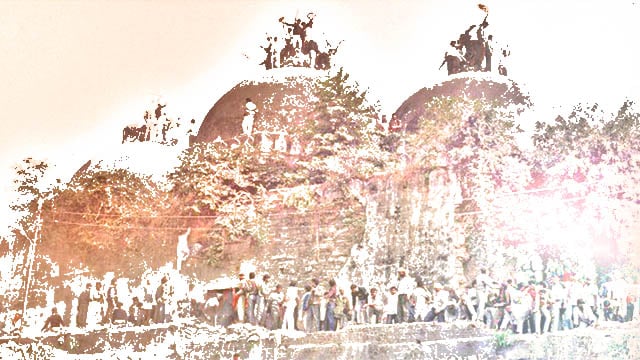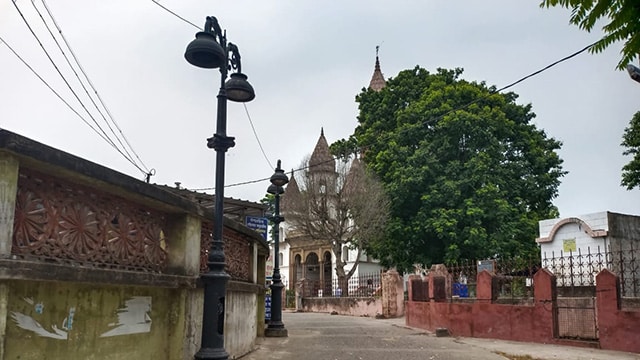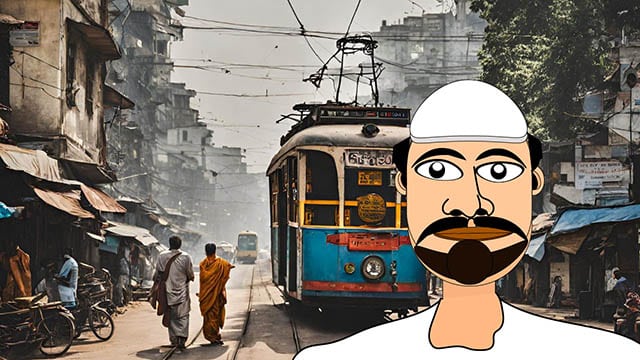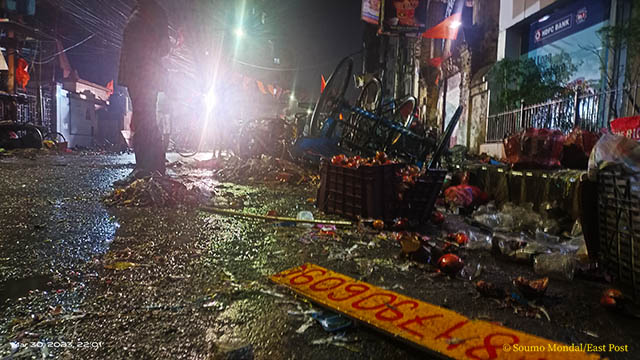The Babri Masjid demolition may be a blot for many in India and the secular camp may lament it, however, it has become a blessing for the BJP even after 31 years, as the party aims to sweep the 2024 general elections riding on the Ram Mandir wave.
The small nondescript town in Uttar Pradesh’s former Faizabad district—now eponymous—Ayodhya has continued to pay huge political dividends to Prime Minister Narendra Modi’s federally ruling Bharatiya Janata Party (BJP). The Babri Masjid demolition on December 6th, 1992, that took place in Ayodhya, led to the demolition of India’s façade of secularism, which cloaked its intense Islamophobia, Brahminical racial supremacy of upper-caste Hindus, and bigotry.
The Babri Masjid demolition was the culmination of the Ram Mandir—the temple of Hindu deity Lord Rama—movement pioneered by the BJP’s parental body Rashtriya Swayamsevak Sangh’s (RSS) affiliated organisations like Vishwa Hindu Parishad (VHP) and Bajrang Dal. The demolition of the 15th-century mosque by the saffron camp, at a time when the Indian economy took a neoliberal turn, helped the BJP to project itself as an organisation that unapologetically stands for the Hindus and their aspirations.
The moral compass of the BJP was never pointed north, but the opportunistic position of the Indian National Congress (INC), its bête noire and a self-styled champion of secularism, also played a big role in the rise of communalism. The INC never contested the Hindutva apocryphal narratives, allowing a fertile ground for fanatics, who decimated the INC from the Indian political landscape. The recently concluded assembly elections in five states proved it.
Now, even though the INC is planning to beat the BJP in the forthcoming general elections by using the same narratives around Modi’s failure to resolve unemployment, inflation and other important problems, the Babri Masjid demolition is all set to help Modi, even 31 years after the incident.
How the Babri Masjid demolition can help the BJP in the 2024 general elections?
On January 22nd, 2024, the under-construction Ram Mandir, which is being constructed on the site of the demolished Babri Masjid according to the Supreme Court’s controversial order of November 2019, will be inaugurated by the Uttar Pradesh government.
Although the construction of the temple will not be finished by then, the BJP-led state government still wants to inaugurate it due to the upcoming general elections, which may take place in March. In that case, the BJP and Modi will pin their hopes on the theatrics and optics created by the grand ceremony to open the Ram Mandir and the flood of pilgrims that the RSS will mobilise to Ayodhya on and after the occasion.
Apart from scrapping Section 370 of the Constitution of India, which guaranteed a quasi-autonomy to the people of the erstwhile princely state of Jammu & Kashmir, and the implementation of a uniform civil code, the BJP promised the voters a Ram Mandir in Ayodhya, at the site where Babri Masjid demolition took place.
Now that two of the three promises are met, the event of the inauguration can help the BJP and Modi deliver a key message to the electorate–the BJP delivers what it promises. This also means the BJP will titillate its Hindutva-incensed voters indicating that the party’s rule will further marginalise and disempower the Muslim community, India’s largest religious minority community, which is perceived as an enemy by the majority community.
The failure of the secular brigade
Rather than developing antidotes to the BJP’s politics of vitriol, the INC and most of the other right-wing Opposition members resorted to what’s called a softer version of Hindutva, to appease the majority Hindu community.
This isn’t a new thing though. The INC’s role in appeasing the majoritarian forces in the late 1970s and 1980s remains well documented. INC’s government, under Rajiv Gandhi, reopened the Babri Masjid, which was closed by the administration after a ruckus in the late 1940s, for daily worship services of Hindus. The other so-called secular parties followed the INC’s footprints.
Right under the nose of the INC and the so-called secular brigade, the RSS and the BJP managed to sway India’s Hindu community, especially the Dalits and backward castes (OBC), to demolish what was left of the façade of secularism. The INC and the former Janata Party constituents paved the way for the Hindutva fanatics to occupy the centre stage of Indian polity after remaining a pariah for decades.
The so-called secular brigade remained mesmerised by the optics of the destruction that unfolded before their eyes. None, except Samajwadi Party founder and former Uttar Pradesh chief minister Mulayam Singh Yadav, took any affirmative action during the phase of the RSS-led militant movement in the late 1980s and early 1990s.
These parties thought they could retain their Hindu vote bank by becoming meek opponents to the BJP and the RSS-led carnage and communal pogroms that followed the Babri Masjid demolition. But they were wrong. Within three decades of the Babri Masjid demolition, most of these parties were either effaced from India’s political landscape or were rendered crippled by the BJP, which became a gargantuan obstreperous entity.
Hardcore Hindutva rabble-rousing helped the BJP in its expansion drive to all corners of the country, even to the Christian-majority states like Mizoram and Nagaland. On the other side, the soft Hindutva and phoney secular approach of the INC and the other parties turned them into nonplayers in even those states that used to be their strongholds–the INC and Samajwadi Party in Uttar Pradesh or the left parties in West Bengal and Tripura.
Lack of narratives
The BJP regularly lambasts the so-called secular camp to entice its vote bank of incensed Hindus. However, for the INC and the secular camp to believe that they can have their share of Hindutva votes is an act of self-deception. Yet, most of these political parties strive for that chimaera.
Rather than roping in the Hindu votes using religious baits, the INC and the secular camp should’ve worked on building a sustainable campaign that could decode the BJP’s political agenda before the common people. The INC and others are dependent on reactive politics as their narratives are created to negate those of the BJP, but not to establish a new, firm agenda.
The fact that the promise of a Hindu theocratic state—Hindu Rashtra—won’t equalise the status of the minority upper-caste elite Hindus and the majority of downtrodden Dalits and OBCs isn’t highlighted by the Opposition. They don’t tell the poor voters that a Hindu Rashtra can benefit Hindu capitalists but won’t promise higher wages to Hindu workers.
These parties remain content reiterating their commitment to secularism like a monk does to his oaths. However, unlike a few—the left parties and the Dravid parties—none have lambasted and exposed the major flaws in the BJP’s ethno-religious agenda.
The banality around Babri Masjid demolition
Each year, the secular forces will organise several events to lament the Babri Masjid demolition, but none would go to the extent of promising the Muslims, who were wronged by the RSS’s actions, which the apex court called criminal, that they would do justice after coming to power.
None of these parties engages the majority Hindu community in discussions of secular values but restricts such conversations and discourses within the Muslim community or the drawing rooms of the elite classes only. This hampers the political remoulding of the poor Dalits and OBCs, who continue to function as the pawns of the Hindutva camp.
In the long run, these forces lamenting over the Babri Masjid demolition but failing to offer any durable solution to the problem expose their lack of interest in resolving one fundamental issue–the desire of the Indian Muslims to live with dignity. The so-called secular lobby doesn’t want to resolve this issue. It seems so from their disarrayed political status. In that case, why do they believe they can defeat the BJP in the 2024 elections riding on their worn-out secular credentials?
The editorial board of East Post is responsible for the columns published in the Editorial section. This column expresses the organisation's views.




